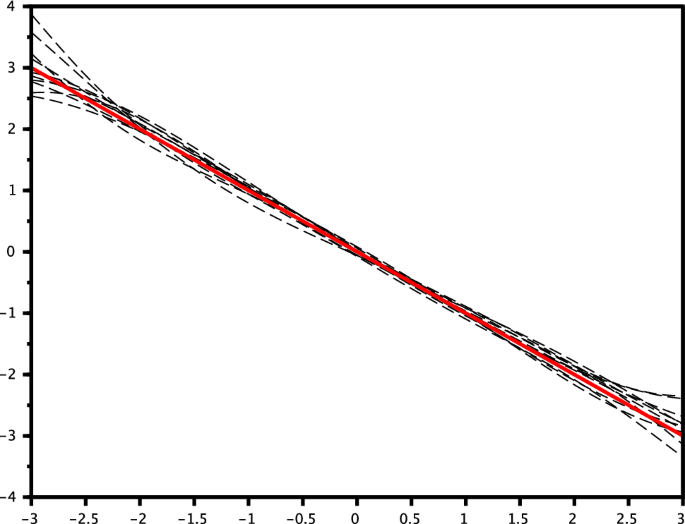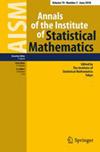On a projection least squares estimator for jump diffusion processes
IF 0.6
4区 数学
Q3 STATISTICS & PROBABILITY
Annals of the Institute of Statistical Mathematics
Pub Date : 2023-09-11
DOI:10.1007/s10463-023-00881-7
引用次数: 0
Abstract
This paper deals with a projection least squares estimator of the drift function of a jump diffusion process X computed from multiple independent copies of X observed on [0, T]. Risk bounds are established on this estimator and on an associated adaptive estimator. Finally, some numerical experiments are provided.

关于跃迁扩散过程的投影最小二乘估计器
本文论述了根据在 [0, T] 上观测到的多个独立 X 副本计算的跃迁扩散过程 X 漂移函数的投影最小二乘估计器。本文建立了该估计器和相关自适应估计器的风险边界。最后,还提供了一些数值实验。
本文章由计算机程序翻译,如有差异,请以英文原文为准。
求助全文
约1分钟内获得全文
求助全文
来源期刊
CiteScore
2.00
自引率
0.00%
发文量
39
审稿时长
6-12 weeks
期刊介绍:
Annals of the Institute of Statistical Mathematics (AISM) aims to provide a forum for open communication among statisticians, and to contribute to the advancement of statistics as a science to enable humans to handle information in order to cope with uncertainties. It publishes high-quality papers that shed new light on the theoretical, computational and/or methodological aspects of statistical science. Emphasis is placed on (a) development of new methodologies motivated by real data, (b) development of unifying theories, and (c) analysis and improvement of existing methodologies and theories.

 求助内容:
求助内容: 应助结果提醒方式:
应助结果提醒方式:


